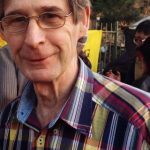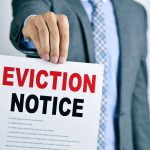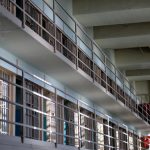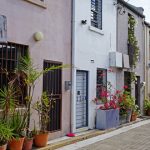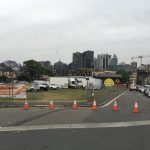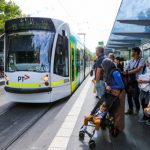Melbourne’s Public Housing Hard Lockdown: An Interview With Victorian Socialists’ Kath Larkin
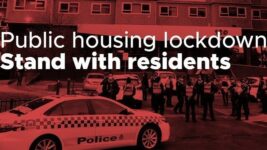
Around 500 Victoria police officers were deployed to nine public housing towers in North Melbourne and Flemington on Saturday to enforce a “hard lockdown”, which means 3,000-odd residents are now confined to their flats for at least five days – maybe fourteen.
This equates to one armed law enforcement officer to every six residents. And the saturation policing of these disadvantaged communities has not been sparked by any crimewave or unrest, but rather these citizens are now detained in their own homes due to a public health crisis.
Hard lockdown meant immediate confinement, with no time to buy food, medicine or intoxicants. Residents can’t leave their homes for any reason. And police are stationed on each floor of the housing towers, monitoring compliance.
According to the Andrews government, the extreme lockdown is necessary due to the spike in COVID-19 cases sweeping Victoria. However, on Sunday, authorities admitted that there hasn’t been any cases detected in some of the towers that are being subjected to these drastic measures.
Systemic prejudice
The hard lockdown has been labelled prejudicial, as large numbers of mainly poor migrants and refugees are confined within the towers, while residents facing a second wave of lockdowns in more affluent areas of the city received prior warning and are allowed to leave home for certain reasons.
Health authorities have said these harsh tactics are necessary due to the “explosive potential” for the deadly virus to spread throughout the overcrowded housing blocks, which raises questions as to why this sector of society is having to live in these dangerous conditions in the first place.
Sydney Criminal Lawyers spoke to Kath Larkin, the Victorian Socialists candidate for Melbourne lord mayor, about how residents are coping, whether promised support workers have made it into the towers and why the bias in this approach is obvious.
Firstly, nine public housing towers around inner city Melbourne were placed under hard lockdown without any notice on Saturday afternoon. This involved around 500 armed police officers being sent in to deal with the situation.
Kath, how have the residents been coping with this sudden confinement?
The people that I have been speaking to in the flats have been taking it pretty hard. There has been a real feeling of anxiety and stress from the uncertainty and from having so much control of their lives taken away with no consultation or discussion.
I was speaking to a mother today, who said her anxiety about COVID is growing, because she feels like part of this lockdown has made things even less safe for her and her family.
They’re now being asked – a few floors at a time – to go downstairs to get tested, which means that they’re standing around with people who are possibly COVID positive.
The other part is the real frustration they’re feeling around being treated like garbage. They feel like they’re being punished. And they’re frustrated that they can’t access prescription medications and appropriate food.
One of the women that I have been speaking to said that a lot of other people think that the residents should just be grateful, which reflects a lot of the racism and stigma about public housing tenants.
Initially, only police officers were deployed, but reports state that support workers are also being sent in now. How are authorities dealing with the people inside as the situation progresses?
Daniel Andrews keeps promising that there are welfare workers, support workers, and drug and alcohol workers involved. But the residents are saying it’s not what they’re seeing. They say that they’re pretty much exclusively seeing police.
That’s completely inappropriate. It’s extremely heavy-handed. You shouldn’t be intimidating people during a public health crisis.
There are health workers involved in the testing that’s going on downstairs, but as far as we are hearing from residents that’s about it.
They get barked orders over megaphones at odd times of the day. There are no door-to-door conversations involved. There’s no text messaging, except for the initial texts that were sent.
It sounds rather traumatising.
Yes, especially when a lot of the people are from migrant or refugee backgrounds. These are people who have a history with detention and authoritarian regimes.
They’ve come here for a better life. And I’m sure this is bringing back really difficult memories to deal with.
You’ve just touched on this, but what types of communities are being affected by the hard lockdown?
The people in the flats are very poor, working class people – mostly migrants and people of colour. These are people who are in insecure, low paid work or are partially or completely on welfare.
We’re also deeply concerned about what’s going to happen with residents in other public housing blocks, which have similar communities.
These are places that are full of low paid frontline workers, who are at higher risk of contracting COVID, living in cramped conditions, with inadequate safety measures in place to reduce the risk of exposure.
We think we need high levels of disinfectant cleaning happening in all public housing blocks, with cleaners supplied with adequate personal protective equipment (PPE)
PPE needs to be made available to residents. There needs to be signage in appropriate language.
There should also be easy to access mass testing throughout Melbourne, including near public housing blocks and worksites where there’s been outbreaks. .
What do you think about the Andrews government having taken this extreme measure?
It’s appalling. It fits in with the neoliberal, pro-law and order agenda of the Andrews government.
We have to keep in mind that this most recent spike that we’re seeing in the community is a state government failure.
It’s what happened around the quarantined hotels. They decided to use an outsourced privatised security firm that didn’t have proper protection control training or proper access to PPE for their workers.
So, these workers have then unwittingly taken the virus back out to their families and into their communities. That’s important to remember, where it has come from.
Then, add this to decades of neglect, underfunding and cutting to public housing and public housing expenditure. This is what helped make these places real tinderboxes or places of danger for COVID.
And lastly, Kath, is there prejudice at play in how the authorities are dealing with these people. You’ve made the point that many residents are socially disadvantaged migrants and people of colour.
In the opinion of the Victorian Socialists, are those in hard lockdown being treated differently from how other members of the community have been treated?
It’s patently the case that they are. We didn’t see anything like this response when the hotspots were in wealthy suburbs.
Public housing residents are the only people who have been locked down so aggressively and without warning.
Again, that comes hand in hand with the pretty racist contempt that this government has had for migrant communities, which is particularly obvious in the fact that they refused until recently to distribute multi-language COVID materials throughout the community.
In fact, in the public housing blocks, they actually refused requests from Adam Bandt to distribute multi-language COVID materials in the flats.


